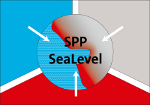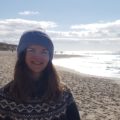project homepage: spp-sealevel.de
SEASCApe Baltic II
SEA-level rise, Storm surges, and Coastal Adaptation at the German Baltic Sea coast
Impacts of individual storm surges can be considerably exacerbated by so-called compound events, which are defined as: (1) two or more extreme events occurring simultaneously or successively; (2) combinations of extreme events with underlying conditions that amplify the impact of the events; or (3) combinations of events that are not themselves extremes but lead to an extreme event or impact when combined. Despite the increasing evidence on the importance of compound events and the ongoing efforts on assessing their likelihood of occurrence, little work has been done on assessing their effects in coastal impact assessments and their multiplier effect on the risk to society. Compound flooding risks are usually also not considered in economic analyses of flood risk management alternatives, which have been struggling to value flexibility trade-offs of long-lasting investments under climate change uncertainties in simpler settings.
SEASCApe II aims to improve the available data on the occurrence of compound events in the Baltic Sea for use in impact assessment and decision analysis. Flood impacts from compound events under present and future socioeconomic pathways and different adaptation options or their combinations will be assessed. The results will be used in adaptive decision-support methods to analyse the value of flexible flood risk management strategies by specifying and applying scenarios of plausible changes in the stock of climate information that is currently available.
The project SEASCApe Baltic II is funded under the priority program 1889 “SeaLevel: Regional Sea Level Change and Society” of the German Science Foundation (DFG).





